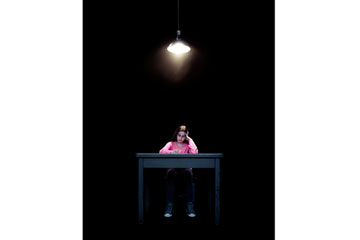
(2 of 4)
How do you ease those concerns? Much of what researchers have found to work has to do with helping students get out of their own way. Most students with test anxiety manage to get something down on paper, but their capacity to think clearly and solve problems accurately is reduced by their nervousness, says Sian Beilock, a cognitive scientist at the University of Chicago and the author of Choke: What the Secrets of the Brain Reveal About Getting It Right When You Have To. Students taking an exam must draw on their working memory, the mental holding space where we manipulate facts and ideas. "When students are anxious, their worries use up some of their working memory, leaving fewer cognitive resources to devote to the test," Beilock explains.
One method that proved successful in a recent trial is to have students spend 10 minutes writing about their thoughts and feelings immediately before taking a test. The practice, called expressive writing, is used by psychologists to reduce negative thoughts in people with depression. Beilock and her colleague Gerardo Ramirez tried this intervention both in Beilock's lab, on college students placed in a testing situation, and in a Chicago school, where ninth-graders did the exercise before their first high school final. In both cases, students' test scores "significantly improved," according to an article Beilock and Ramirez published last year in the journal Science.
While one might imagine that writing about a looming exam would only heighten anxiety, Beilock says the opposite was the case. "Writing about their worries had the effect of offloading them onto the page so that the students had more cognitive horsepower available to apply to solving problems on the test," she explains. For both groups, Beilock and Ramirez reported in Science, "one short writing intervention that brings testing pressures to the forefront enhances the likelihood of excelling, rather than failing, under pressure."
THE STEREOTYPE THREAT
Apprehension about tests can be especially common among minority and female students. That's because the prospect of evaluation poses for them what psychologists call stereotype threat--the possibility that a poor performance will confirm negative assumptions about the group to which they belong. (Among the specious, anxiety-inducing tropes: girls can't excel in math and science, and blacks and Latinos aren't college material.) This additional layer of anxiety can lead such students to perform below their capabilities. "Girls and black and Latino students are often dealing with a double dose of test anxiety," says Stanford University psychologist Gregory Walton. "The nervousness everyone feels when they're being evaluated, plus the worry--conscious or not--that a poor performance will prove that the negative assumption about their group is correct."
